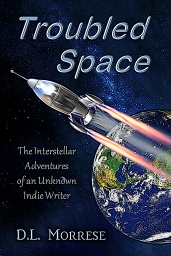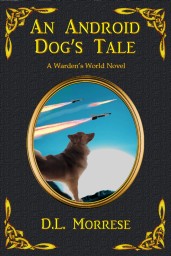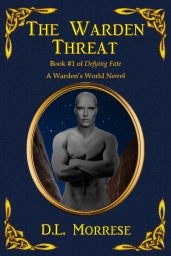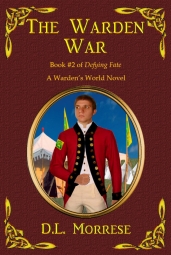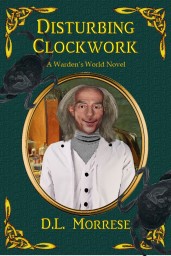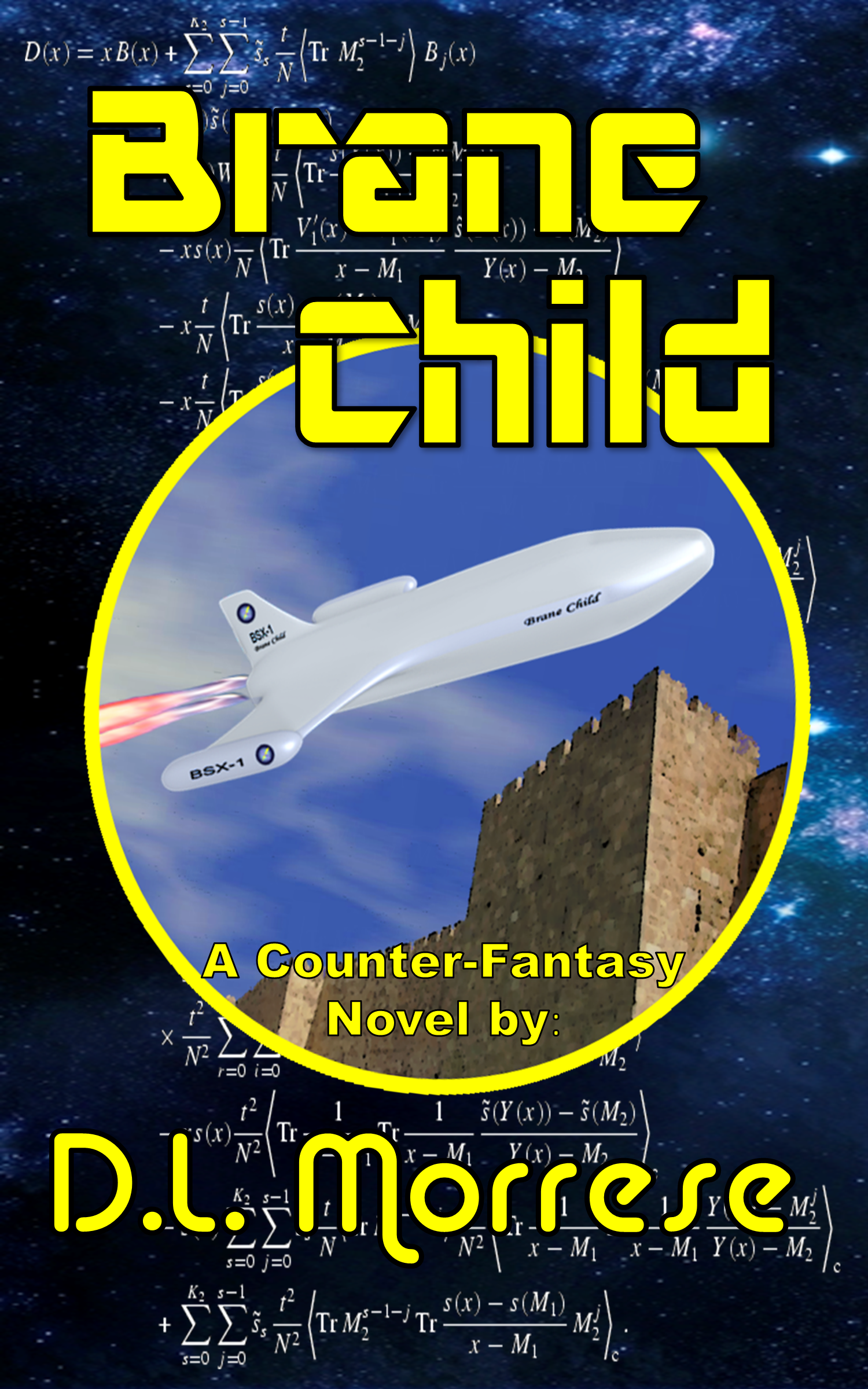 Boomenbust and the Shoemaker – A fairytale of productivity
Boomenbust and the Shoemaker – A fairytale of productivity
by D.L. Morrese
Once upon a time, a long time ago, a young elf by the name of Boomenbust, together with many of his elfish clan, worked for a kindly old shoemaker in a fairytale kingdom far, far away. A lot of stories take place there, so it must be a real place, unlike those we hear about from time to time that are just far too silly to exist, such as Europe or China or America.
Now, the shoemaker was very grateful for the elves’ help because their skill and dedication made it possible for him to make a great many quality shoes, one hundred pairs every day, and the shoemaker sold them all.
He paid the elves well from the profit, and they used their wages to buy modest little homes, shoes for themselves, and food and clothes and other things for their families, with enough left over for an occasional book they could read to warm their hearts and minds on cold nights, or to visit the country for a picnic when the weather was nice.
The shoemaker, who had become fairly wealthy, bought a new coat for his wife and new clothes for his children and a fine new house on a hill for them to live in.
The elves made even more shoes, and with experience, these shoes were of even better quality and were very popular. The elves were so good at what they did, the shoemaker no longer had to make shoes himself, but he did make more money.
 One day, four men delivered a large crate to the shoemaker’s shop. Boomenbust the elf had no idea what it contained. The letters painted on the outside just said, ‘From: Gizmo’s Machines. Deliver to: the Shoemaker’s Shop on Feet Street.’ There was also an arrow pointing to the side, under which it said ‘This End Up.’
One day, four men delivered a large crate to the shoemaker’s shop. Boomenbust the elf had no idea what it contained. The letters painted on the outside just said, ‘From: Gizmo’s Machines. Deliver to: the Shoemaker’s Shop on Feet Street.’ There was also an arrow pointing to the side, under which it said ‘This End Up.’
Soon after the delivery men left, the shoemaker arrived in a fancy new carriage pulled by a sleek black horse. He was wearing a silky coat and matching top-hat— the shoemaker, that is, not the horse. Not that it would be silly for a horse to wear a coat and top-hat. These things happen all the time. It is just that in this case, it was the shoemaker who wore them. They would not have fit the horse. The shoemaker had gained some weight over the years, but he was not yet so large that his clothes would fit a horse, unless it was a very small horse.
“This machine can make two hundred pairs of shoes every day,” the shoemaker told Boomenbust, “and it needs only one elf to operate it. You are my best worker, so I have chosen you for this honor.”
“What of all my friends and relatives?” the elf asked. “What will they do if only one elf is needed to run the machine?”
“Well,” the shoemaker said, “I no longer have work for them, so I must let them go. This is how business works, you know? I can’t pay people for doing nothing.”
“Um, will I be paid more, then?” Boomenbust asked. He felt a bit guilty about this, considering that the other elves would no longer be paid at all, but if he were paid more, perhaps he could help them out for a while until they found new jobs.
“More?” The shoemaker pretended to think about the question. “No. I don’t see how that would be right. I paid a lot of money for this machine, and I must make that good. Besides, operating this machine will be much easier for you than making shoes by hand, won’t it? It would not be right to pay you more for less work.” Boomenbust followed the path of the shoemaker’s logic, but it somehow seemed a bit twisty.
“Please let the others know about their jobs,” the shoemaker continued. “I’d do it myself, but I have to go now. I am taking my family to a very expensive restaurant for dinner soon to celebrate our new machine.”
With this, the shoemaker left, and Boomenbust sadly went to inform the others of his clan that they no longer had jobs. He asked them to help him unpack the box first, of course. He felt they might be less inclined to do so afterwards.
 “What’s this, then?” one of the older elves asked, eyeing the machine skeptically. It was a monstrous device with big cogs, levers, cutting blades, and chutes. It looked like something that might eat elves more than it did like something to make shoes. Boomenbust imagined it also looked hungry. A thick operator’s manual was taped to the side.
“What’s this, then?” one of the older elves asked, eyeing the machine skeptically. It was a monstrous device with big cogs, levers, cutting blades, and chutes. It looked like something that might eat elves more than it did like something to make shoes. Boomenbust imagined it also looked hungry. A thick operator’s manual was taped to the side.
He told them what it was and what it meant.
“But, what will we do?” one of them asked. “We have children to feed and mortgages to pay.”
Boomenbust thought about this. He was not a quick thinker or even a deep thinker, but a simple idea presented itself for his examination, and he liked how it looked.
“Well,” he said, “the people who made this machine might have work for you. After all, if this does what I’m told it does, I imagine a lot of places would want things like this.”
The elves paused a moment to consider this idea, and then the quickest among them rushed out to find Gizmo the machine maker. When the last of them had left, Boomenbust unpacked the operating manual and began to read.
The next day, he learned that some members of his clan were given jobs with Gizmo. Others were not. He felt bad for them, but what could he do? At least some of his clan had found work.
 As time went on, the elves working for Gizmo helped him make even better machines. The shoemaker bought one of these to replace the old one. This allowed Boomenbust to make more shoes even faster. He was very proud of himself because he had learned all of the quirks of the new machine, and the shoes he made were just as good as those the elves had once made by hand, perhaps better. He thought of all those shoes keeping feet safe, dry and warm that might otherwise be bare. He was doing something good.
As time went on, the elves working for Gizmo helped him make even better machines. The shoemaker bought one of these to replace the old one. This allowed Boomenbust to make more shoes even faster. He was very proud of himself because he had learned all of the quirks of the new machine, and the shoes he made were just as good as those the elves had once made by hand, perhaps better. He thought of all those shoes keeping feet safe, dry and warm that might otherwise be bare. He was doing something good.
The shoemaker was pleased, too. “We’re doing very well,” he told him one day. People all across the kingdom are buying our shoes. We’re doing so well, in fact, that I’m buying another of Gizmo’s improved shoe making machines and I’m hiring more people.”
This was good news to Boomenbust because the machine was not quite as easy to keep running properly as the shoemaker seemed to believe.
“Yes, now that we are such a big business, we need executives to help me manage it. I’m making my daughter the new vice president in charge of customer research; my wife will be vice president for marketing, and my son will be vice president for manufacturing.”
“Does this mean your son is going to help me run the machines?” Boomenbust asked, suspecting that he already knew the unfortunate answer.
The shoemaker raised his bushy white eyebrows in disbelief. “Run the machines? Of course not, my good elf. Executives don’t run machines. They manage. Managing is very difficult and important work for a business with as much, um, business as ours.”
The next day, the new machine from Gizmo’s arrived, and the deliverymen helped him unpack it and place it beside the other. It operated much the same, which came as a relief, and he soon had it running. He was now making as many as a thousand pairs of shoes a day, and the shoemaker may have been right about the new executives because they were selling almost all of them— for a while. But then, for some unknown reason, sales fell.
Then, they fell some more. The better shoes, those that were expensive and stylish and didn’t last long, still sold well enough, but they made few of those. Common shoes that regular people wore to work or to school or just to go out to shops or whatever had stopped selling well, and those were most of the ones they made.
 The shoemaker’s daughter who was the vice president for consumer research thought they weren’t selling because they were ugly, so Boomenbust tried to make them prettier with different colors and fancy stitching. It didn’t help.
The shoemaker’s daughter who was the vice president for consumer research thought they weren’t selling because they were ugly, so Boomenbust tried to make them prettier with different colors and fancy stitching. It didn’t help.
 The shoemaker’s wife who was the vice president for marketing thought they just needed to advertise more, so they did. They hung posters and put ads in the newspaper. This also did not help.
The shoemaker’s wife who was the vice president for marketing thought they just needed to advertise more, so they did. They hung posters and put ads in the newspaper. This also did not help.
The shoemaker’s son who was the vice president for manufacturing thought that someone else might be selling shoes even cheaper, but he walked all over town and found no one who was.
Soon, it was quite clear that Boomenbust was able to make more shoes than the shoemaker could sell.
“I’m sorry, Boomenbust,” the shoemaker said to him one day. “I don’t have enough work for you anymore. I’m going to have to cut your hours.”
“Does this mean…?”
“Yes, I’m afraid so. It has to come with a cut in pay. It would not be fair to full time workers if I paid you as much as them.”
“But you don’t have any—”
“That’s beside the point. If I did have any, I would pay them more. You’re a good worker and you’ve been with me a long time, but with sales not increasing as much as I would like, I just don’t have enough work for you to do anymore.”
When Boomenbust finished his four-hour shift at the shoemaker’s that day, he went to Gizmo’s machine shop. He knew his former coworkers would put in a good word for him, and, after all, two part time jobs were almost as good as one full time job.
The elf who met him at Gizmo’s shop was one who used to work with him at the shoemaker’s. He did not look happy.
“A job?” the elf asked. “I think not, my good Boomenbust. I am the only elf working here now, and Gizmo just told me he’s cutting my hours!”
“But why?” Gizmo said. “You must be selling a great many of his fabulous machines.”
“We are. We’re doing so well that Gizmo bought a big house on a hill next door to the shoemaker’s, but we’re also making a great many machines. You see, once we learned all about the machines by making them, we helped Gizmo make a machine that makes machines. It only needs one elf to operate, so he let all of the other elves go.”
“Oh, my!” Boomenbust said.
“Oh, me, too!” said the other elf. “I was hoping the shoemaker might have more work by now and hire me back.”
Boomenbust shook his head. “No. Sales are down, and we don’t know why, but the simple fact is that I’m making more shoes than he can sell.”
Both elves sighed. They did not know where else to go, so they went everywhere. They went to the tailor, to the potter, to the weaver…. All the shops and businesses in town were much the same. Productivity was up but sales were down, and no one was looking for more worker elves.
“On the positive side,” said Boomenbust who always tried to not feel negative, “we have more free time, now. Let’s go see how the other elves are doing. They must have found other work to do.”
So they walked to the elfish sector of town and past the small school where a number of pointy-eared children were running about on the playground. Now, neither of the two adult elves walking by was ever out this time of day because both of them were normally busy working in town. It is therefore not surprising that what Boomenbust noticed is something he had never noticed before. He stopped and stared. He could not believe it. Most of the children were barefoot. Those who were not barefoot were wearing worn and obviously secondhand shoes. How could this be? He made enough shoes for everyone. There should not be a naked toe in town.
“Excuse me, young man,” he said to one of the boys. “Why aren’t you wearing shoes?”
The boy looked at him as if the question was so simple a child could answer it, which he did. “Don’t have any, duh!”
“Why not?” Boomenbust responded.
“I’ve got no older brothers to pass any down to me.”
This was perplexing, so Boomenbust asked the question he probably should have asked to begin with. “Why don’t your parents buy you new shoes?”
“Shoes cost money.”
“Yes…?”
“Don’t have any, duh!” the boy repeated.
“Oh, I see. They lost their jobs, didn’t they?”
“Duh!” the boy said again, and then he ran off to join his friends.
Boomenbust asked a few more children similar questions, and their responses were always the same. Their parents were out of work because shops and businesses had become more productive. They could make all they could sell with fewer hours of work. The owners’ solved the imbalance by firing workers.
Boomenbust now knew why the shoemaker and the rest were not selling as many things as they would hope, but, as has been said before, he was neither a quick thinker nor a deep thinker, and he did not know how to solve the problem.
Do you?
© Copyright 2013 D.L. Morrese
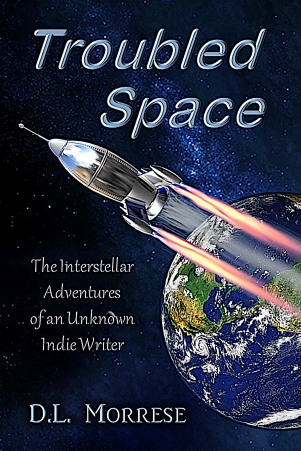 Ted Lester writes stories no one reads. Agents reject him. Editors ignore him. Frustrated, he self-publishes, hoping the world will find value in his books. Then, early one morning, as he is yet again attempting to compose prose that might attract the attention of…well, anyone, something remarkable happens. He gets an unexpected visit from an agent, but not one he has ever queried. This agent is from outer space, and it tells Ted that one of his books has become popular throughout the galaxy, and that he, as the author, can have everything he ever wanted: fame, fortune, and above all, fans. All Ted has to do is agree to go on an interstellar book tour.
Ted Lester writes stories no one reads. Agents reject him. Editors ignore him. Frustrated, he self-publishes, hoping the world will find value in his books. Then, early one morning, as he is yet again attempting to compose prose that might attract the attention of…well, anyone, something remarkable happens. He gets an unexpected visit from an agent, but not one he has ever queried. This agent is from outer space, and it tells Ted that one of his books has become popular throughout the galaxy, and that he, as the author, can have everything he ever wanted: fame, fortune, and above all, fans. All Ted has to do is agree to go on an interstellar book tour.







 It’s been a month since I wrote about sorting through the story seeds I’ve collected. Life being as distressingly short and encumbered as it is, I could never hope to grow all of these into novels or even short stories, so choices must be made. I’m happy to announce that I’ve picked one to nurture as my next major project.
It’s been a month since I wrote about sorting through the story seeds I’ve collected. Life being as distressingly short and encumbered as it is, I could never hope to grow all of these into novels or even short stories, so choices must be made. I’m happy to announce that I’ve picked one to nurture as my next major project.




















